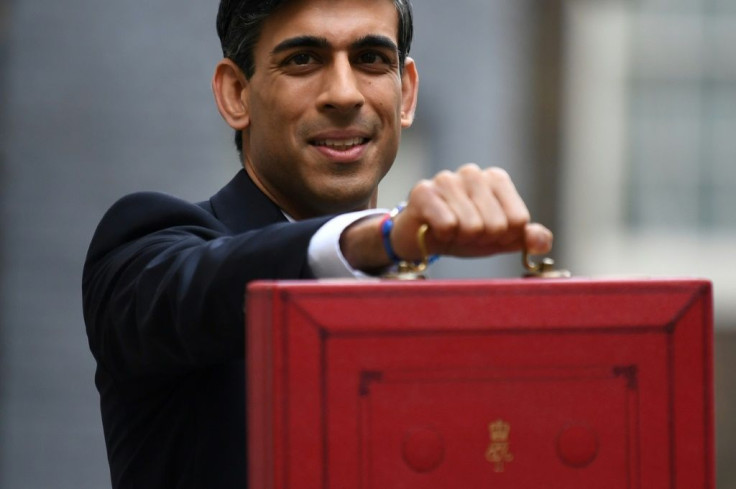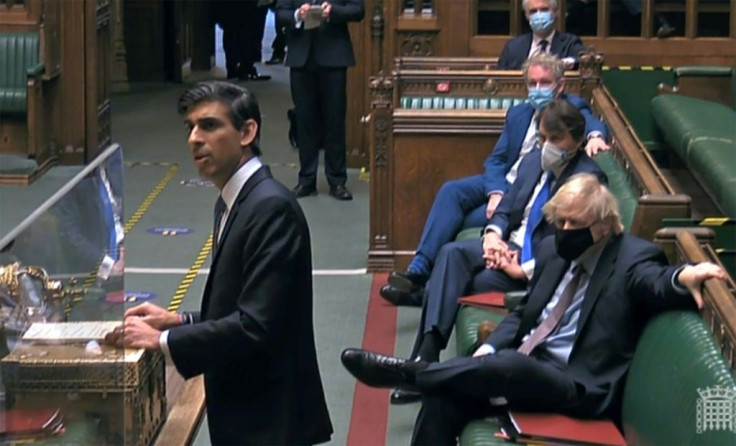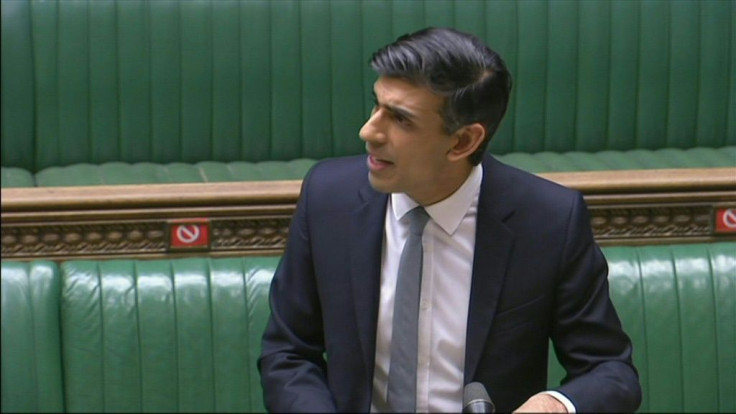UK Sees Weaker Rebound, Hikes Tax In Virus-fighting Budget
Britain's economic rebound from "profound damage" caused by coronavirus will be much weaker than expected, the government warned Wednesday in a budget that protects jobs but also hikes corporation tax.
"Coronavirus has done and is still doing profound damage," finance minister Rishi Sunak said in a budget statement after the economy shrank by 10 percent last year -- its worst performance in more than three centuries.
Britain is the worst-hit country in Europe with more than 123,000 Covid deaths and some four million cases.

However, economic recovery prospects have been boosted by its rapid vaccination programme that has seen more than 20 million adults receive a jab since December.
"To the families and friends left behind: your loss must be overwhelming, but I promise you we will meet this moment with the passion and energy it deserves and we will build a fairer and more just country in their memory," Sunak told a Downing Street press conference.

The UK economy would expand by 4.0 percent this year, down from the government's previous estimate of 5.5 percent growth, he forecast in the budget.
The state's emergency support package is set to total ?407 billion ($568 billion, 471 billion euros), the chancellor of the exchequer said as he updated the nation on his tax and spend plans.
"Our borrowing is the highest it has been outside of wartime," he added.
The budget presented by Sunak will extend a multi-billion-pound jobs furlough scheme and temporary reductions in VAT (sales) and property taxes.

But he added that tax on company profits would be hiked to 25 percent for larger businesses in 2023 from 19 percent.
However "the UK will still have the lowest corporation tax rate in the G7 bloc of wealthy nations", the chancellor insisted.

Analysts at financial services company EY described the move as "the single biggest tax rise in the budget".
Gross domestic product was expected to expand by 7.3 percent next year, which marked an upgrade from the prior guidance of 6.6 percent.
"It's going to take this country -- and the whole world -- a long time to recover from this extraordinary economic situation. But we will recover," Sunak said.
England's third lockdown will start to be lifted from Monday, with the reopening of schools to students, followed by non-essential shops and hospitality in the coming months.
On the eve of the budget, Sunak said the government would extend its furlough scheme paying the bulk of wages for millions of private-sector workers until the end of September, five months longer than planned.
While welcoming the move, leader of the main opposition Labour party Keir Starmer slammed the budget for failing to address inequality that has been exposed by the pandemic.
"It is clear the chancellor is now betting on a recovery fuelled by a consumer spending blitz," Starmer responded.
"But the central problem in our economy is a deep rooted insecurity and inequality and this budget isn't the answer to that."
Recent analysis from the Institute for Fiscal Studies think tank showed that lower-income UK households had not been able to save as much cash as richer counterparts, sparking greater inequality in society during the crisis.
The budget also confirmed the launch of an Infrastructure Bank with ?12 billion in capital.
The lender will be formed to finance projects in the green economy, focusing on areas such as carbon capture and renewable energy.
While the economy tanked in 2020 because of the pandemic, activity was hampered also by turmoil ahead of Britain's eventual exit from the European Union.
© Copyright AFP 2024. All rights reserved.











